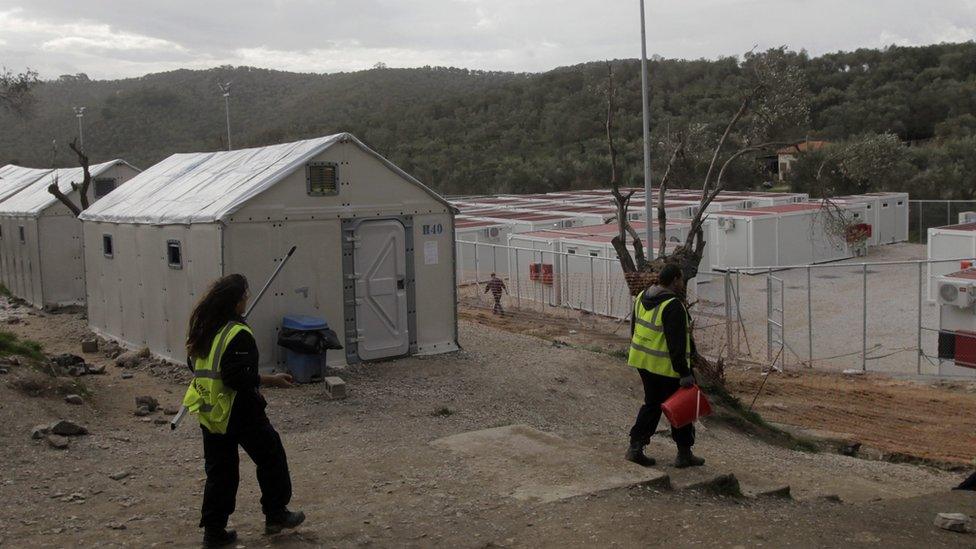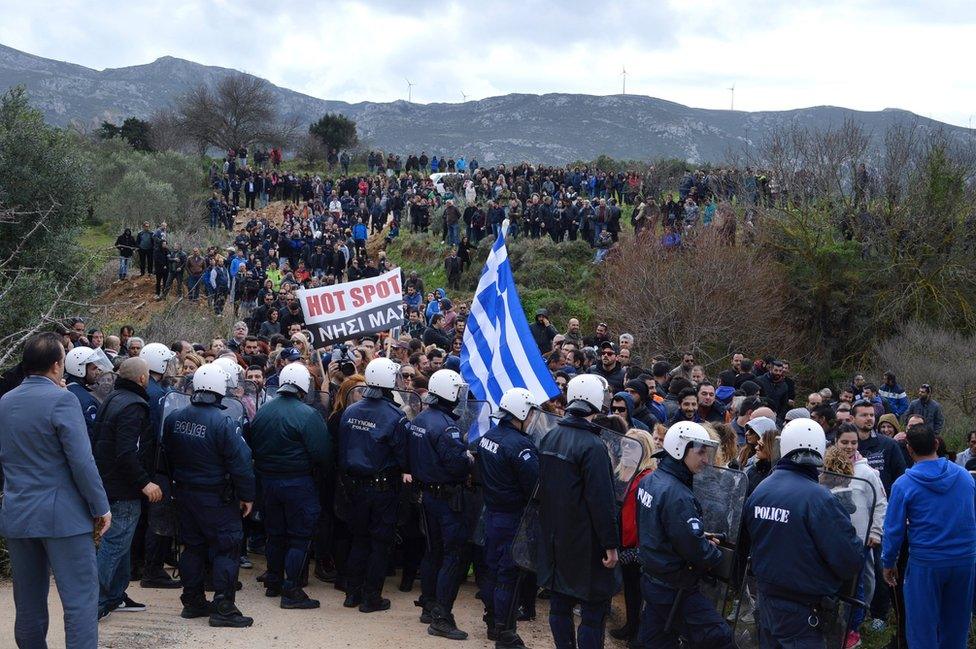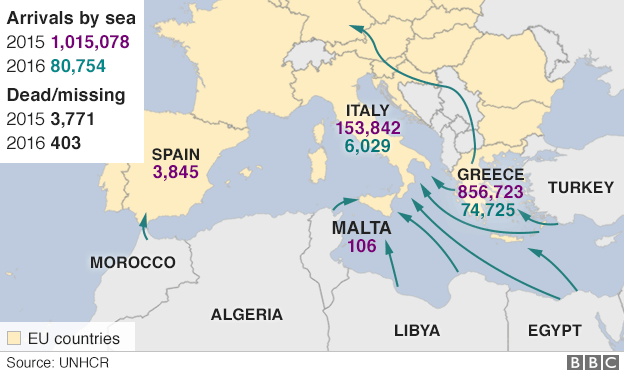Migrant crisis: EU reassures Greece over Schengen zone
- Published

A new migrant camp has been prepared at Moria on Lesbos
The EU summit chairman, Donald Tusk, says expelling Greece from the passport-free Schengen zone would not solve the EU's migrant crisis.
The European Council president was speaking in Athens, as Greece announced that four out of five new registration centres for migrants were now ready.
Greece is under huge pressure from its EU partners to stop the daily flow of thousands of migrants north through the Balkans. Many are Syrian refugees.
EU border staff are helping Greece now.
Last week the EU set Greece a deadline of three months to fix its border controls, amid fears of another migration surge from Turkey when the weather improves.
Schengen: EU free movement deal explained
Macedonia tries to stop migrant flow
The crisis will be high on the EU's agenda at a Brussels summit on Thursday.
The risk of jihadists sneaking in has added to European concern about Schengen. Two of the jihadists who attacked Paris in November had travelled via Greece, among refugees.
The influx has angered politicians in Austria and some other Schengen countries - to the point where some want to expel Greece from the 26-nation zone.

On Kos locals protested against a new migrant centre - or "hotspot" - on Sunday
But Mr Tusk said that "excluding Greece from Schengen solves none of our problems".
"It does not end the war in Syria. It does not end Europe's attraction of migrants. And it is not a common European solution. What we must do is to improve the protection of our external borders, not least here in Greece."
Last year more than 850,000 migrants - mostly refugees fleeing war and abuses in Syria, Iraq and Afghanistan - entered Greece as a gateway to the EU.

Nato warships are now joining the effort to stop migrant boats crossing from Turkey to nearby Greek islands. Hundreds have drowned because the migrant boats are often unseaworthy.
Macedonia has put up extra barbed wire fencing and imposed strict controls at its border with Greece.
Greece was supposed to complete five registration centres for migrants by the end of last year, but there were delays. So the job of fingerprinting and screening new arrivals, to determine who could qualify for asylum, has been slow and inefficient.
Four of the new centres - called "hotspots" - are now ready to be opened on the islands of Lesbos, Chios, Leros and Samos, Greek Defence Minister Panos Kammenos said on Tuesday.
A fifth, on Kos, will be ready "in five days", he said - despite local opposition there.
A note on terminology: The BBC uses the term migrant to refer to all people on the move who have yet to complete the legal process of claiming asylum. This group includes people fleeing war-torn countries such as Syria, who are likely to be granted refugee status, as well as people who are seeking jobs and better lives, who governments are likely to rule are economic migrants.